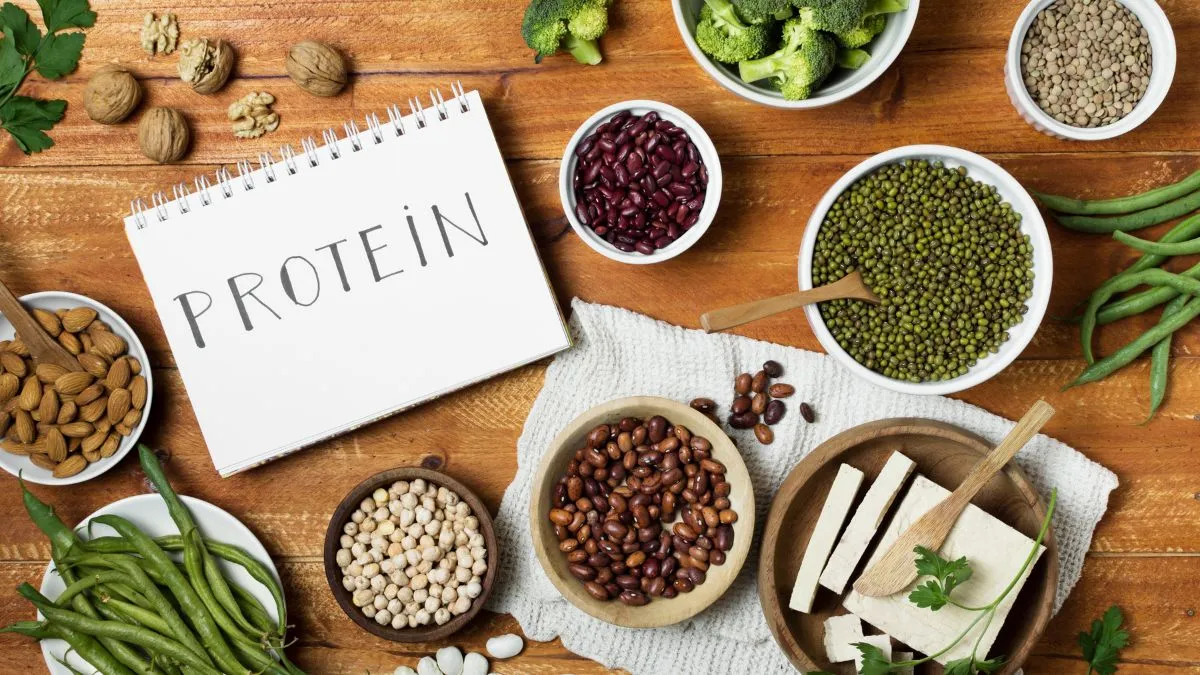
Protein plays a significant role in preserving hormonal balance and cognitive function in a time when stress, irregular eating patterns, and sedentary lifestyles are negatively impacting health. Dr Yashawant Kumar, Founder and CEO of Benefic Nutrition, elaborates why this macronutrient is a crucial regulator of our body’s most important functions rather than only a muscle-builder.
Table of Content:-
Why Protein Is Important?
Protein is the hero of hormonal health. Hormones control every aspect of life, which includes emotion, metabolism, reproduction, and sleep. "It provides the amino acids needed to produce and regulate these chemical messengers," according to Dr Yashawant.
The other important benefits of protein for our health are:
- Insulin Sensitivity: If an individual take enough protein it will help in keeping blood sugar levels steady, will avoid insulin resistance, which is currently becoming a bigger problem in the diabetes capital of India.
- Thyroid Function: Tyrosine is present in poultry, fish, and dairy products, which is necessary for the thyroid to produce hormones that regulate weight and energy levels.
- Mood and Sleep: Eggs, soy, and pumpkin seeds contain tryptophan, which breaks and form melatonin and serotonin to boost emotional health and sleep quality.
Also Read: Expert Shares The Optimal Protein Intake In Your 30s
Protein has an ability to balance estrogen and progesterone that helps women by lowering PMS symptoms and PCOS-related difficulties. "Many women with irregular cycles see improvement when they correct protein deficiencies," says Dr Yashawant.
Fueling the Brain: The Cognitive Advantages of Protein
Neurotransmitters that affect memory, mental clarity & focus, such as dopamine and acetylcholine, are produced by the brain using amino acids. "A protein-deficient diet can lead to brain fog, poor concentration, and even long-term cognitive decline," states Dr Yashawant. Adequate protein consumption has been linked in studies to improved academic performance in children and a decreased risk of Alzheimer's disease in adults.
The Protein Gap in India and Recommended Dietary Solutions
According to ICMR statistics, despite the necessity of protein, 80% of Indians are protein deficient and frequently consume diets high in carbohydrates. Dr Yashawant recommends these useful adjustments:
- Mix Carefully: To fulfill the proteins you need to combine grains (rice, roti) with dairy or pulses (dal, chana).
- Eat Wisely: Greek yoghurt, paneer cubes or roasted chana can be used in place of processed treats.
- Balance Supplements: If you have inadequate food intake specifically for vegetarians, it is prescribed to take plant-based powders (hemp, pea) into consideration.
- Be Wary of Overconsumption: Even though too much protein, particularly from red meat or processed supplements, might strain the kidneys and cause inflammation, it is still necessary. "The key is balance. Dr. Yashawant suggests aiming for 0.8–1g per kg of body weight while accounting for activity levels.
Also Read: How Protein Deficiency Is Affecting Your Daily Strength and Efficiency
Final Word
Making protein a priority could revolutionize Indian nutrition, considering the rise in lifestyle disorders. "It's not about costly supplements," Dr. Yashawant asserts. The answer is in our traditional thali, which consists of dal, curd, and greens; we just need to eat with awareness.
Also watch this video
How we keep this article up to date:
We work with experts and keep a close eye on the latest in health and wellness. Whenever there is a new research or helpful information, we update our articles with accurate and useful advice.
Current Version
